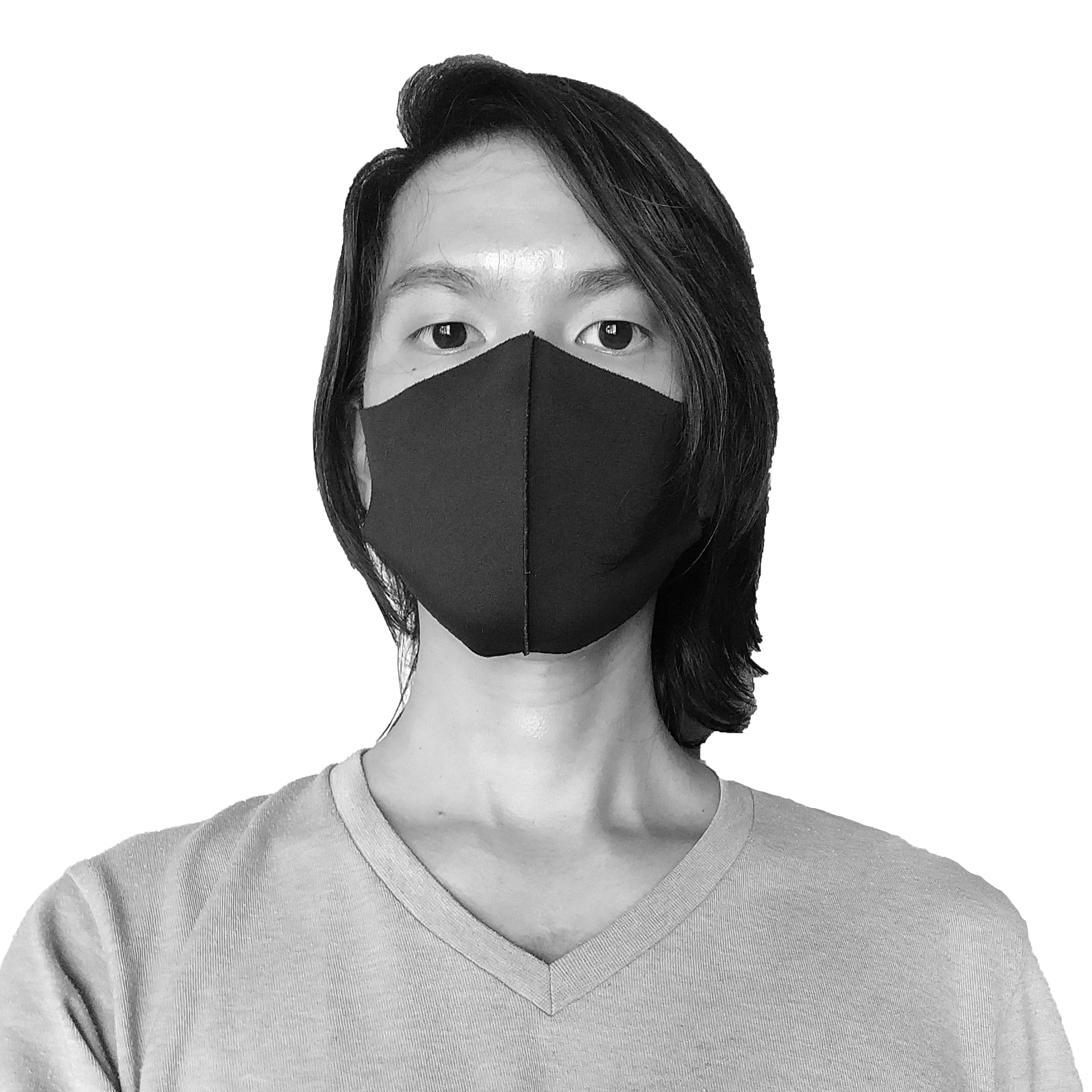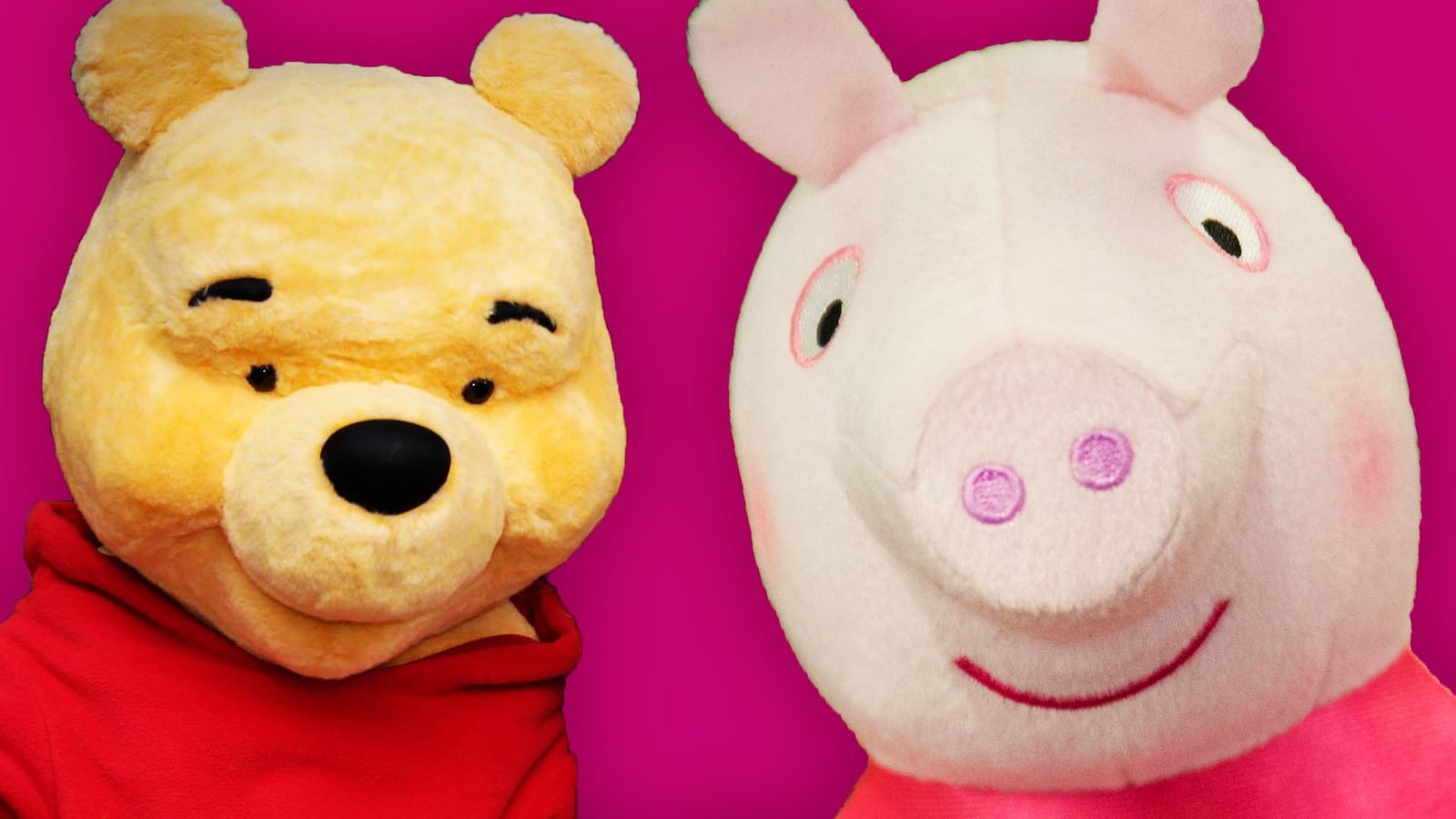HONG KONG—The British cartoon character Peppa Pig—she of the Picasso-esque eyes on one side of her flat face; the pink heroine of countless little family dramas beloved by little kids around the world—is a hit in China. But not only with the intended demographic.
Pink wrist watches bearing the pig’s likeness are best-selling items for some online stores. You can find teenagers and men in their early 20s posting selfies to show off their temporary (and occasionally not so temporary) Peppa tattoos. And in recent days she’s been banned by a video-streaming website. Hashtag variants of the pig’s name, such as #PeppaPeppa and #PiggyPiggy, also were censored. State media outlet Global Times called it a “crusade” against a “subculture icon.”
There had been other problems with Peppa, according to the article. It would seem that last year some Chinese parents complained that their children were “addicted to Peppa Pig,” and “began oinking and jumping into puddles after watching the cartoon.” But the subculture referred to in that report is a more serious phenomenon. It is called shehuiren, which translates directly as “a member of society,” but is used to describe rowdy young adults, particularly young men.
How did an animated farm animal meant for preschoolers come to be associated with millennials who are labeled by state media as “slackers” and the “antithesis of the young generation the [Chinese Communist] Party tries to cultivate”?
To understand the link, we need to revisit Elsagate, a controversy that first erupted in the United States when certain video content creators used popular cartoon characters, like Elsa from Frozen, in clips that depicted adult themes—murder, suicide, sexual situations, abortions, and all manner of violence—while packaging the videos as child-friendly content on YouTube and YouTube Kids.
The titles of those clips often contained keywords that parents might search for when scouring the web for educational programs for their children, including “learn colors” and “nursery rhymes.” Last November, YouTube cleared the problematic videos from public access after a public backlash.
But those clips and newly produced ones now continued to live online in China at various video-hosting sites that are visited by many users each day, with some sharing them for sick giggles. And videos that involve Peppa Pig, for some reason, have become particularly popular, sparking a tamer following even beyond the shehuiren subculture.
Instead of expending the effort to purge its servers of reprehensible content, Douyin, the streaming platform that banned Britain’s most well-known cartoon pig, decided to scrap all videos featuring her, including the original episodes that contain useful lessons for kindergarteners. In Douyin’s new community regulations, Peppa Pig is lumped together with banned images that include nudity, “excessive cleavage,” “seduction,” cross-dressing men, narcotics, or “proselytizing by cults.”
It was only back in 2015 that Peppa first came to China, along with her family, and her cartoon clips immediately were adopted by early-years educators in their classrooms, because educational materials produced locally often do not prepare children in ways that are demanded by Chinese parents. With clean, crisp, colorful visuals, crystal clear storytelling, catchy tunes, and a repetition of key phrases, Peppa Pig was an instant success. Parents who wanted their sons and daughters to develop a foundation for English language skills before they entered elementary school could depend on Peppa’s narrated adventures to be fun, engaging lessons.
In fact, Peppa is not gone for good. She may have been scrubbed from Douyin, but clips of the cartoon pig’s youngster-friendly adventures could still be found on other Chinese video-hosting sites. One service, iQiyi, still has 156 episodes indexed and available for streaming, with over 13 billion views recorded so far.
Other cartoon character from the West were squashed by Chinese censors before Peppa Pig. In the aftermath of Elsagate, Elsa of Disney’s Frozen was blacklisted temporarily, as was Marvel’s Spider-Man. Videos that were tagged with the terms “injection” and “dental surgery” as keywords were also blocked from search results, as these actions were depicted in some of the more nightmarish knock-off videos.
In a much grander fashion, though in a different context, Winnie the Pooh was banned because it was appropriated as a meme to poke fun at Chinese president Xi Jinping’s public appearances on the theory that he bears some physical resemblance to the hapless, honey-loving bear. (The name of a Chinese leader from a different era, Jiang Zemin, is synonymous with toads, which led to suppression of an inflatable amphibian meme.)
Douyin, the Peppa suppressor, has some reason to be nervous about government reaction to its content. It is owned by the tech company Bytedance, which operates several services. Among them is a widely read news app called Toutiao. But one of its most popular products, Neihan Duanzi, an app where users share jokes and memes, was shut down by the State Administration of Radio and Television because of the “vulgar” and “improper” content that appeared on the platform. A blanket ban of Peppa Pig on Douyin could be a move to dissuade the State Administration from cracking down on more of Bytedance’s services.
In mid-April, China Daily reported that two theme parks based on Peppa’s videos are in the works, meant to be launched in Beijing and Shanghai. The rush isn’t only to capitalize on Peppa’s popularity, but also to align with the coming milestone in zodiacal: 2019 will be the year of the pig, and you can be sure that Peppa wants to be around for that.






